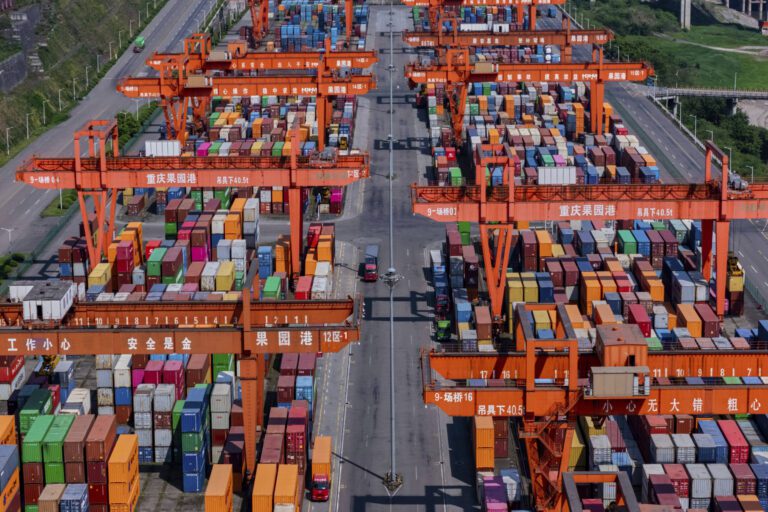Global Economic Outlook: IMF Predicts Growth Slowdown Amid Trade Tensions
The International Monetary Fund (IMF) has recently issued a stark warning about the future of the global economy. As tariffs imposed by the Trump administration lead to escalating trade tensions, economic growth rates are projected to decline while inflation rises.
Key Insights from the IMF Report
In its latest World Economic Outlook, the IMF underscored the increasing volatility and uncertainty in the global market:
- Economic Growth Forecast: The IMF has lowered its projections for global growth to 2.8% for 2025 and 3% for 2026, a drop of approximately 0.8% from earlier estimates made in January.
- U.S. Growth Revision: The growth forecast for the United States has been revised down to 1.8%, down from 2.7% earlier this year. This shift is attributed in part to the effects of current tariffs.
- China’s Economic Slowdown: Similarly, China’s growth is now expected to slow to 4% for the year, a 0.6 percentage point decrease from previous projections.
Rising Inflation and Trade Uncertainty
The IMF’s chief economist, Pierre-Olivier Gourinchas, addressed the implications of this economic reset:
“We are entering a new era. This global economic system that has operated for the last eighty years is being reset.”
This could lead to heightened inflation rates, as the IMF has raised its inflation forecast for the U.S. to 3%, up from 2%. These figures suggest an unsettled financial landscape that many experts are monitoring closely.
Potential Risks Ahead
The agency emphasizes the need for countries to collaborate to maintain a stable and predictable trading environment. Kristalina Georgieva, chairwoman of the IMF executive board, stated:
“The global economy is at a critical juncture, with significant internal and external imbalances and vulnerabilities.”
Current Economic Conditions
In addition to growth forecasts, the IMF does not currently anticipate a recession in the United States. However, it has increased the probability of one to 37%, up from 25% in January. Here are some critical risk factors to consider:
- Escalating Trade Tensions: The ongoing trade war is expected to fuel economic uncertainty.
- Market Adjustments: Financial markets are adjusting rapidly, which could impact investment opportunities.
- Potential Cooperation Downturn: A lack of international cooperation might jeopardize progress towards economic stability.
Regional Impacts
-
European Union Outlook: The EU is expected to grow more slowly, though its exposure to tariffs is comparatively lower than that of China. Additionally, stronger government spending, particularly in military areas, may help the EU withstand the trade headwinds.
- Banking Sector Stability: Despite the turbulent market, banks remain well-funded. However, the IMF warns that significant disruptions could arise as tariffs begin to take effect.
Conclusion: A Path Forward
The IMF concludes with a glimmer of hope: if nations can negotiate new trade agreements and adopt more favorable trade policies, global growth prospects can improve rapidly.
For those interested in understanding the dynamics of the global economy, accessing the full World Economic Outlook report will provide comprehensive insights into these developments.
Call to Action
As global economic conditions evolve, staying informed about emerging trends and policy changes is essential for businesses and consumers alike. For regular updates and analysis, consider following trusted financial news outlets or subscribing to economic forecasts.
Related Links:
By keeping abreast of these changes, individuals and organizations can better prepare for the challenges and opportunities that lie ahead in this new economic era.


